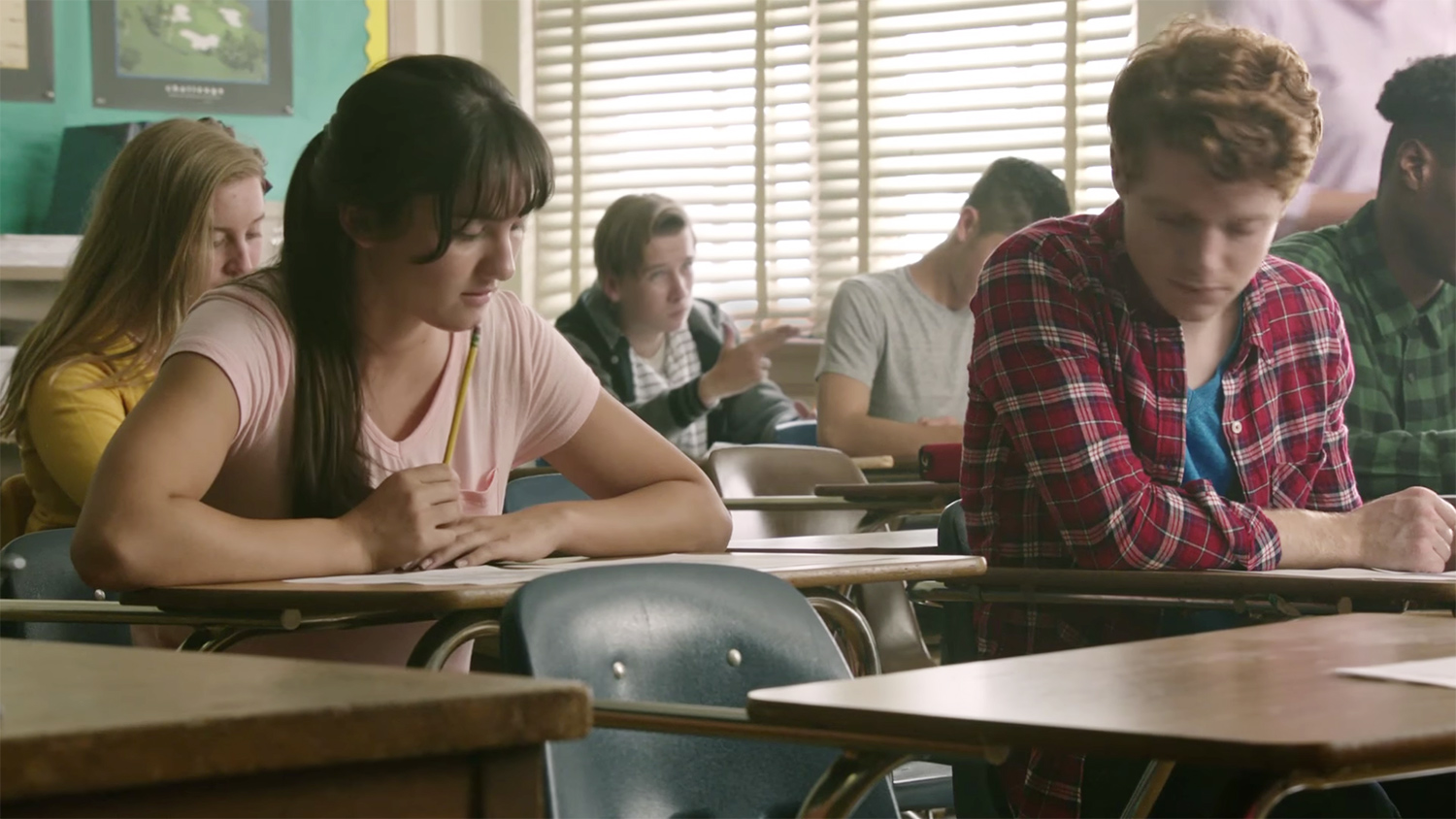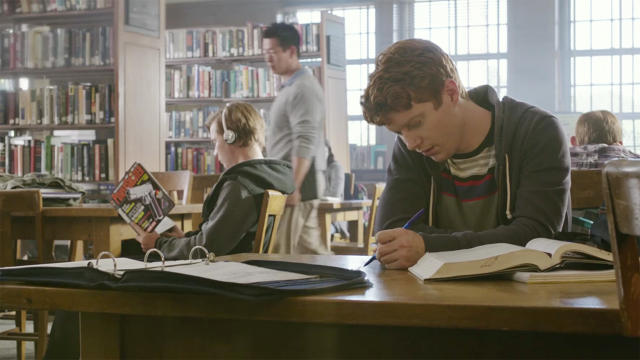Co-Founder and Managing Director Nicole Hockley, and BBDO NY Creative Director Peter Alsante on the value of a relatable story.
According to Sandy Hook Promise, 80% of school shooters and 70% of individuals who completed suicides told someone of their violent plans prior to taking action, yet no interventions were made. But you could probably recognize the signs, right? It can't be that tough, can it?
Perhaps the biggest reason the new PSA "Evan" for the national gun violence prevention organization has more than 4 million views in just a few days, is for just how thoroughly it exposes how unaware we all can be. A perfect way for a PSA to raise our awareness to better see and hear the potential warning signs.
It's not the first time Sandy Hook Promise and BBDO New York have worked together. In 2014, they launched a three-minute PSA called "Monsters Under The Bed," and the full-length doc What They Left Behind.
Sandy Hook Promise's mandate is to help teach young people and adults how to recognize an individual exhibiting at-risk behavior, and how to effectively intervene to get them help before they hurt themselves or others. The organization's "Know the Signs" research-based programs are provided at no cost to schools and community organizations, and in just 22 months, they've trained 1.5 million students, teachers, school officials, and parents in all 50 states in at least one of the programs.
Sandy Hook Promise co-founder and managing director Nicole Hockley, who lost her first-grade son Dylan in the Sandy Hook Elementary School massacre of 2012, says the ongoing challenge, and that of the new PSA, is to really explain in very clear terms what the organization's mission is, and to get people engaged. And as soon as they saw the concept for "Evan," they knew it was the one.
"It was exactly what we were looking for. As the storyboards were done, the director chosen, it just came to life in such a way that we knew it was going to be a powerful piece," says Hockley. "I showed my colleague Tim who had been writing the brief with me, and even he missed most of the signs when he first saw it. So if teaching people to recognize the signs is what we do every day, and even he missed some because he was engrossed in Evan's story, I knew if we could fool even ourselves, we had something that will truly open a lot of eyes, and make people see this problem in a different way."

BBDO New York creative director Peter Alsante says one of the biggest challenges in crafting a story for this issue is that it's often difficult for most people to relate to. "It's such a tragedy, and so many people say, 'That's terrible but it would never happen here.' Our big goal or challenge going into this is to take this thing that's so abstract to so many people, and frame it in a way that it becomes believable, relatable, something tangible," says Alsante.
The answer wasn't to make gun violence more relatable, but to use a very relatable story to view the issue of gun violence through. "Most of us haven't experienced the tragedy of losing a loved one to gun violence, but we can all relate to the experience of falling in love in high school, and the awkwardness and excitement that comes from it," says Alsante. "We use that as a bit of a foil, to get people nodding their heads, feeling that they're along for the ride with a story they can relate to, then we reveal to them this whole other story's been going on, we've worked our way in to making our story about gun violence into something that's relatable."
Creating a PSA that truly works to achieve its goal of engaging us is no easy task. We've been seeing the ads telling us about starving people around the world or what our brains look like on drugs our entire lives. That may sound a bit callous, but much like charity fatigue, when we're inundated with or overly accustomed to a certain style of PSA, it's difficult to get connect with the message.

"One of the biggest hurdles for a PSA is, you're trying to appeal to someone on an emotional level who may not be experiencing the cause you're talking about, whether it's cancer, gun violence or another issue," says Alsante. "So we're looking for ways to tell stories that feel true and authentic, and bring the viewer into the story, get them emotionally invested for the outcome."
Hockley says a PSA has to find a way to really draw you in, otherwise it's just another commercial. "We're not just selling a product, we're selling an idea with an educational point, and that is all about the storytelling," she says.
For "Evan," given gun violence and gun control are such divisive issues, Alsante says they really set out to create a message that unified rather than divided people. "We focus on people and mental health, as opposed to guns themselves," he says. "It invites everyone to be a part of this conversation, regardless of what side of the aisle you're on politically."
